
Intensive Care Medicine Experimental
Scope & Guideline
Enhancing Global Accessibility to Vital Medical Knowledge
Introduction
Aims and Scopes
- Critical Care Physiology and Pathophysiology:
Research exploring the physiological mechanisms underlying critical illnesses, including studies on hemodynamics, oxygenation, and organ dysfunction. - Innovative Resuscitation Techniques:
Investigation of novel methods and technologies for resuscitation, including extracorporeal techniques and mechanical ventilation strategies. - Animal and Experimental Models:
Utilization of various animal models to understand disease mechanisms and test interventions for conditions such as sepsis, ARDS, and cardiac arrest. - Artificial Intelligence and Machine Learning Applications:
Integration of AI and machine learning to enhance clinical decision-making, predictive modeling, and patient monitoring in intensive care settings. - Interventions for Organ Support and Recovery:
Research focused on therapeutic interventions aimed at supporting organ function in critically ill patients, including fluid management, pharmacological treatments, and extracorporeal therapies. - Translational Research:
Studies that bridge the gap between laboratory findings and clinical applications, aiming to implement effective treatments in intensive care practice.
Trending and Emerging
- Personalized Medicine Approaches:
A focus on individualized treatment strategies tailored to the specific needs of critically ill patients, including personalized fluid management and sedation protocols. - Advanced Monitoring Techniques:
Increased research into sophisticated monitoring technologies, such as AI-driven analytics and non-invasive measurements, to enhance patient safety and outcomes. - Sepsis and Infection Management:
Growing attention on the mechanisms of sepsis, including host response and therapeutic interventions, reflecting the ongoing challenge of infection control in critical care. - Mechanical Power and Ventilation Strategies:
Emerging interest in the concept of mechanical power in ventilation, with studies exploring optimal ventilatory strategies to minimize lung injury. - Neurocritical Care:
A rising trend in addressing neurological complications in critically ill patients, with research focused on brain monitoring and management strategies. - Extracorporeal Support Systems:
Increasing exploration of extracorporeal therapies, including ECMO and other organ support technologies, as critical interventions for severe respiratory and circulatory failure.
Declining or Waning
- Basic Science in Isolation:
There has been a noticeable decrease in purely basic science studies that do not directly translate into clinical applications, as the journal increasingly prioritizes translational research. - Traditional Mechanical Ventilation Techniques:
The emphasis on conventional mechanical ventilation approaches appears to be waning, with a shift towards more innovative and individualized ventilation strategies. - Non-Experimental Observational Studies:
A reduction in the number of purely observational studies without experimental components suggests a move towards more rigorous experimental designs. - Single-Center Studies:
There is a growing trend towards multicenter studies, indicating a decline in the publication of single-center research which may limit generalizability.
Similar Journals
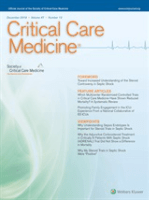
CRITICAL CARE MEDICINE
Exploring the Frontiers of Critical Care KnowledgeCRITICAL CARE MEDICINE is a premier journal dedicated to the advancement of knowledge and practice in the field of critical care and intensive care medicine. Published by Lippincott Williams & Wilkins, this distinguished journal has been at the forefront of medical research since its inception in 1973, and it continues to offer insights into the latest developments and innovations in critical care. With a remarkable ranking of #5 out of 110 in Scopus' Critical Care category and a 95th percentile rating, CRITICAL CARE MEDICINE is a leading source for high-impact research, reviews, and clinical studies. The journal is recognized as a Q1 publication, underscoring its authoritative presence within the academic community. Researchers and clinicians are encouraged to engage with cutting-edge findings that aim to improve patient care and outcomes. Although the journal is not open access, it remains an essential resource for professionals seeking to enhance their understanding and application of critical care practices.
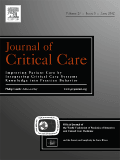
JOURNAL OF CRITICAL CARE
Elevating Standards in Intensive Care MedicineJOURNAL OF CRITICAL CARE, published by W B SAUNDERS CO-ELSEVIER INC, is a prestigious peer-reviewed journal in the field of critical care and intensive care medicine. With an impressive Q1 classification in 2023, it stands as a leading publication among its peers, ranking #12 out of 110 in the Scopus database, which places it in the 89th percentile of critical care-related journals. Established in 1986 and with a converged timeline extending to 2025, the journal serves as a critical resource for international researchers, healthcare professionals, and students dedicated to advancing practices and understanding within the realm of critical care. Although it does not offer Open Access, the journal provides high-quality, rigorously reviewed articles that address contemporary issues, innovative techniques, and groundbreaking research in critical care medicine. By fostering scholarly dialogue and disseminating new knowledge, the JOURNAL OF CRITICAL CARE is pivotal in shaping the future of intensive patient care and enhancing health outcomes.

Anesteziologie a Intenzivni Medicina
Exploring Innovations in Anesthesiology and Intensive MedicineAnesteziologie a Intenzivni Medicina is a pivotal Czech journal dedicated to the fields of anesthesiology, critical care, and intensive medicine. Published by SOLEN SRO, this journal plays a crucial role in disseminating essential research and advancements in these vital areas of medicine. With the ISSN 1214-2158 and E-ISSN 1805-4412, it has been in publication since 2003, showcasing a wealth of knowledge that is particularly relevant to the clinical practices in the Czech Republic and beyond. Although currently classified in the Q4 quartile for both anesthesiology and critical care disciplines, the journal is committed to fostering high-quality research and clinical discussions. Researchers and healthcare professionals can benefit from its content that encompasses various aspects of patient care and procedural developments. This journal is a valuable resource for those aiming to stay updated within the fast-evolving landscape of anesthesiology and intensive medicine, despite its limited open access options. As it progresses towards its 2024 convergence year, Anesteziologie a Intenzivni Medicina strives to elevate its impact and relevance in the medical community.

Anaesthesiologie
Innovative Solutions in Anesthesiology: Your Gateway to KnowledgeAnaesthesiologie is a pivotal journal dedicated to advancing the field of anesthesiology and pain medicine. Published by Springer Heidelberg, this journal serves as a vital platform for disseminating high-quality research and clinical practice advancements within the domain. With an ISSN of 2731-6858 and an E-ISSN of 2731-6866, it operates out of Germany and achieves a respectable impact factor, placing it in the Q3 category for the field as of 2023. The Scopus rank reflects its standing among peers, being positioned at #64 out of 136, showcasing a 53rd percentile in anesthesiology and pain medicine. While open access options are currently unavailable, this journal remains committed to enhancing knowledge and practice standards for researchers, professionals, and students alike, particularly through the period spanning from 2022 to 2024. Contributions to Anaesthesiologie are essential for those seeking to stay at the forefront of innovations and challenges in anesthesia practice.
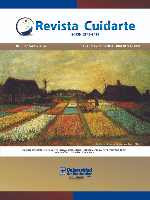
Revista Cuidarte
Championing Quality Research for Better Patient OutcomesRevista Cuidarte is a distinguished Open Access journal published by UNIV SANTANDER in Colombia, aimed at advancing the fields of Community and Home Care, Critical Care and Intensive Care Medicine, Family Practice, and Nursing. Since its inception as an Open Access platform in 2010, this journal has become an essential resource for researchers, healthcare professionals, and students, promoting the dissemination of high-quality, peer-reviewed research. With a scope that encompasses diverse nursing disciplines and healthcare practices, Revista Cuidarte plays a pivotal role in enhancing understanding and innovation in patient care. Despite being categorized in the Q4 quartile for some categories and Q2 for Nurse Assisting in 2023, it actively contributes to the academic discourse through its commitment to accessibility and scholarly rigor, thus serving as a valuable outlet for emerging research ideas and practices. The journal is indexed in Scopus, highlighting its regional and international relevance.

Medizinische Klinik-Intensivmedizin und Notfallmedizin
Elevating Standards in Critical and Emergency CareMedizinische Klinik-Intensivmedizin und Notfallmedizin, published by SPRINGER HEIDELBERG, is a distinguished journal that serves the fields of critical care, intensive care medicine, emergency medicine, and internal medicine. With an ISSN of 2193-6218 and an E-ISSN of 2193-6226, the journal has established its presence in Germany and has garnered respect within the international medical community. It has demonstrated noteworthy impact, classified in the Q2 and Q3 quartiles across various categories in 2023, including Critical Care and Intensive Care Medicine, Emergency Medicine, and Emergency Nursing. This journal not only showcases cutting-edge research but also offers a platform for sharing innovative practices and clinical developments, thereby facilitating improved patient care and outcomes. As an accessible resource for researchers, professionals, and students dedicated to advancing their knowledge in acute and critical care settings, the journal represents an essential addition to the scholarly landscape in its field.
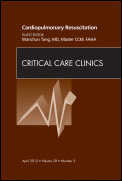
CRITICAL CARE CLINICS
Navigating the Complexities of Critical Care with ExpertiseCRITICAL CARE CLINICS is a premier academic journal published by W B SAUNDERS CO-ELSEVIER INC, focusing on advancing knowledge in the fields of Critical Care and Intensive Care Medicine. With an impressive impact factor and designated as Q1 in both Critical Care and Intensive Medicine categories, this journal is a leading resource for healthcare professionals, researchers, and students alike. Since its establishment in 1985, it has evolved into an essential conduit for cutting-edge research, clinical insights, and evidence-based practices, bridging the gap between theoretical understanding and practical application in critical care. The journal maintains a high ranking, being positioned 15th of 110 in its category according to Scopus, with a noteworthy percentile of 86, indicating its influence and relevance in contemporary medical discourse. Although the journal is not open access, it provides valuable content for those dedicated to enhancing patient care and advancing the science of critical medicine. Its commitment to excellence makes it a vital resource for anyone engaged in the dynamic field of critical care.
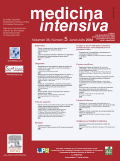
Medicina Intensiva
Inspiring Progress in the Realm of Intensive CareMedicina Intensiva is a distinguished journal published by Elsevier España SLU, specializing in the critical care and intensive medicine fields. Since its inception in 1988, this peer-reviewed journal has established itself as a vital resource for healthcare professionals and researchers dedicated to advancing the knowledge and treatment of critically ill patients. With an impact factor ranked in the Q2 category for Critical Care and Intensive Care Medicine, the journal sits at the 50th percentile among its peers, reflecting its reputable standing in the academic community. The scope of the journal encompasses a wide array of topics, from clinical practices to innovative research findings, contributing significantly to the enhancement of patient care in intensive settings. Although the journal does not currently offer Open Access options, its valuable content is accessible to subscribers and institutions, reinforcing its role as an important conduit for disseminating high-quality research. As we continue into 2024, *Medicina Intensiva* remains committed to supporting the medical community through insightful articles and timely reviews that shape the future of intensive care.

Current Emergency and Hospital Medicine Reports
Advancing Emergency Care Through Rigorous ResearchCurrent Emergency and Hospital Medicine Reports, published by Springer, is a pivotal journal in the field of emergency and hospital medicine. With a commitment to disseminating crucial research and advancements, this journal serves as a platform for sharing high-quality studies that enhance clinical practices and improve patient outcomes. As an important resource for researchers, healthcare professionals, and students, it caters to the growing need for evidence-based knowledge in emergency medicine. Although currently not classified as open access, the journal offers a wealth of information that aligns with the latest innovations and practices in the discipline. By engaging with diverse topics, from clinical interventions to hospital management strategies, it aims to inform and inspire the next generation of practitioners and scholars in this vital field of medicine. With its ISSN of 2167-4884, Current Emergency and Hospital Medicine Reports is dedicated to advancing the frontiers of emergency healthcare through rigorous research and illuminating insights.

INTENSIVE CARE MEDICINE
Connecting Research and Practice in Intensive Care ExcellenceINTENSIVE CARE MEDICINE is a premier academic journal in the field of critical care and intensive care medicine, published by SPRINGER. With an impressive HIndex and a remarkable impact factor, this journal consistently ranks in the top quartile of its category, achieving Q1 status for 2023. Spanning over four decades since its inception in 1977, it serves as a crucial platform for disseminating groundbreaking research and clinical advancements that shape the future of intensive care. Notably, it holds a distinguished position in the Scopus rankings, placed #1 out of 110 in its field, reflecting its importance and influence among researchers and clinicians alike. Although it is not an open-access journal, it offers various subscription options, ensuring wide accessibility to its high-quality content. The journal is dedicated to enhancing knowledge and practices within the critical care community, making it an indispensable resource for practitioners, researchers, and students pursuing excellence in intensive care medicine.